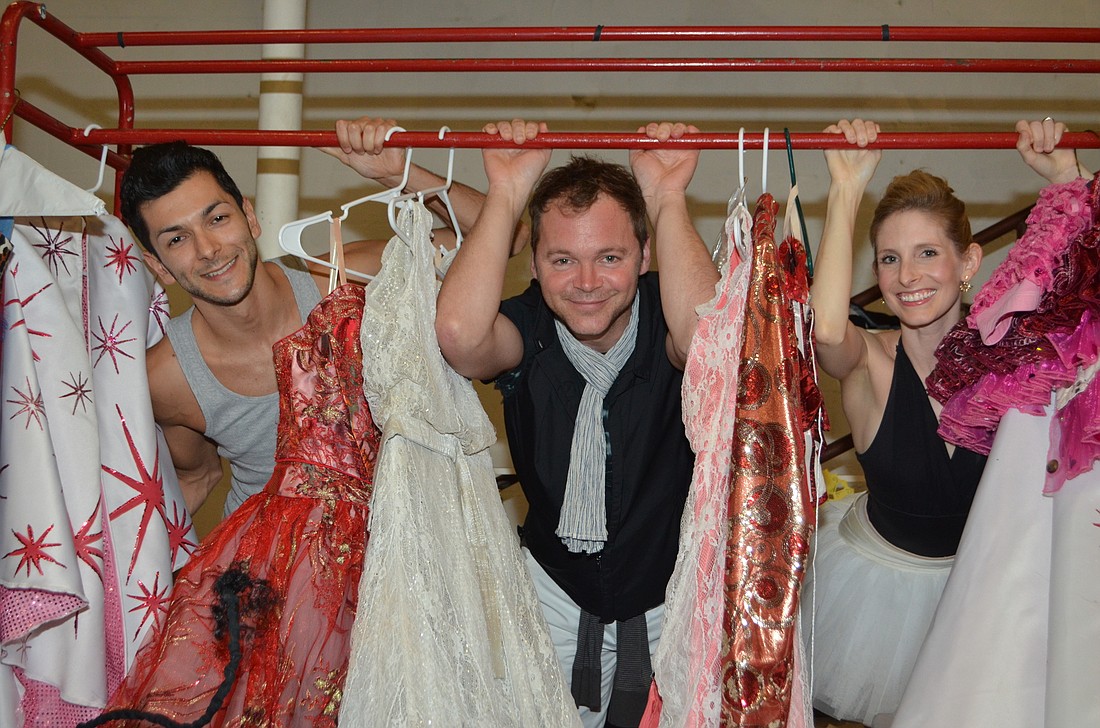- April 4, 2025
-
-
Loading

Loading

Since the first performance of “The Nutcracker” in 1892, Marius Petipa and Lev Ivanov’s choreography and Pyotr Ilyich Tchaikovsky’s music has been converting generations of viewers into ballet fans and future dancers.
A dance classic, its reach is far broader than just a holiday production. For many, it’s their introduction to the world of ballet. So what does it take to adapt a hallmark of dance? The Sarasota Ballet explains how it reimagined the ballet under a Sarasota big top in “John Ringling’s Circus Nutcracker,” playing Dec. 18 and 19.
Plenty of people have seen “The Nutcracker.” But how many have seen it set in a Sarasota circus, starring John and Mable Ringling? That was Sarasota Ballet Director Iain Webb’s challenge in 2012: to reinvent a classic.
He called on choreographer Matthew Hart to inject the holiday hallmark with the real-life history of Sarasota’s first family of circus.
“When Iain Webb called me to create a new ‘Nutcracker’ for the company, he said he wanted something that could relate it to the town’s deep circus history,” says Hart, who has returned to Sarasota to help restage the show. “I found a way I could combine the story of Sarasota circus and the traditional Nutcracker story.”
There were several parallels that Hart capitalized on: It opens like any other production of “The Nutcracker,” with a family’s Christmas Eve party, but after the initial Yuletide setting, the similarities evaporate.
Injecting the stories of John and Mable Ringling and their nephew, John Ringling North, this “Nutcracker” exchanges the original characters, apart from the protagonist, Clara, for a colorful circus menagerie. The eponymous nutcracker is now a circus ringleader; the “Waltz of the Flowers” turned to roses from Mable Ringling’s rose garden; horses transformed into zebras; acrobats fly in the “Chinese Dance;” elephants and caged lions fill the “Arabian Dance;” and an army of clowns battle a battalion of Prohibition gangsters.
“The marriage of Sarasota circus and the traditional ‘Nutcracker’ just gives our production a different edge, a different type of ‘Nutcracker,’ that you really can’t find anywhere else,” says Hart.
“It’s nice to have our hometown pride front and center,” adds Ricardo Graziano, principal dancer and highwire walker Prince in the “Circus Nutcracker.” “It makes this ‘Nutcracker’ not only important to the dancers, but to the community and families who bring their kids to the show for the first time.”
Also coming to the show for the first time are the swarm of children dancers and professional dancers who are new to the company. Though some might have danced in the classic version of “The Nutcracker,” there are many in the production who will be doing it circus-style for the very first time.
“I know when Iain said to me initially that he wanted a new Nutcracker was that it needed to have a different style on it,” says Hart. “He wanted a Nutcaracker with a different edge. The marriage of circus and show gave it that edge.”
Even for principal and experienced dancers such as Graziano and Kate Honea, who have danced this circus version of Nutcracker and classical takes on the ballet dozens of times prior, it’s still a challenge when it’s brought back into the season.
“It never gets easier, but at the same time, we’re now three years older since the first time we did it,” says Graziano. “We’re more mature and we’ve changed as dancers, so we have to adapt.”
And especially for Honea and Graziano as the high-flying diva stars of the Nutcracker circus, there are certain moments where experience is definitely handy, such as when the curtain rises at the beginning of act two and the dancers, as their high-wire trapeze characters Sugar and Prince, are balancing on a trapeze high above the stage. Honea says it’s an intense moment.
“I think I’ll fall if I even smile too much, and he’s over there working the crowd up,” says Honea, pointing to Graziano.
“I love it,” adds Graziano. “We get the chance to be the stars of the circus.”
It’s moments like that from the show’s circus edge that feeds the adrenaline of dancers old and young alike.
“The thing with ballet is that it never gets easier,” says Hart. “It’s not just about dancing. It’s about creating magic.”